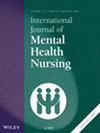Experiences of Mental Health Nurses in Providing Care to Patients Receiving Electroconvulsive Therapy in South Korea
IF 3.6
2区 医学
Q1 NURSING
引用次数: 0
Abstract
In recent years, the demand for electroconvulsive therapy has been increasing in South Korea. However, there are problems due to mental health nurses' lack of understanding about electroconvulsive therapy and the absence of systematic education. This study aimed to explore mental health nurses' experiences of providing care to patients receiving electroconvulsive therapy in South Korea. We used content analysis to analyse the data collected from focus group interviews with 22 mental health nurses working in mental health hospitals. The results revealed four themes and 10 subthemes. More specifically, the results showed that mental health nurses consider themselves helpers in recovery. They pursue the physical and emotional well‐being of patients receiving electroconvulsive therapy and strive to ensure that patients receive electroconvulsive therapy comfortably and safely. However, contentious issues such as concerns about patient dignity and autonomy lead to differing perceptions and attitudes towards electroconvulsive therapy and cause internal conflict during therapeutic interactions. Furthermore, insufficient education on electroconvulsive therapy leads to a lack of knowledge and difficulties in fulfilling the role of an information provider. The shortage of coping measures and support systems for issues such as extensive adverse effects and restricted medication increases the work burden immensely. These findings can serve as foundational data for the development of standardised nursing practices and systematic education for electroconvulsive therapy.韩国心理健康护士为接受电休克疗法的患者提供护理的经验
近年来,韩国对电休克疗法的需求不断增加。然而,由于精神科护士对电休克疗法缺乏了解,且缺乏系统的教育,因此存在一些问题。本研究旨在探讨韩国精神卫生护士为接受电休克疗法的患者提供护理的经验。我们采用内容分析法对 22 名在精神病院工作的精神科护士进行的焦点小组访谈所收集的数据进行了分析。结果发现了四个主题和十个次主题。更具体地说,结果显示心理健康护士认为自己是康复的帮助者。他们追求接受电休克治疗的病人的身心健康,并努力确保病人舒适、安全地接受电休克治疗。然而,对患者尊严和自主权的担忧等争议性问题导致了对电休克疗法的不同看法和态度,并在治疗互动过程中引发了内部冲突。此外,有关电休克疗法的教育不足也导致人们缺乏相关知识,难以履行信息提供者的职责。对于广泛的不良反应和用药限制等问题,缺乏应对措施和支持系统,极大地增加了工作负担。这些研究结果可作为制定电休克疗法标准化护理实践和系统教育的基础数据。
本文章由计算机程序翻译,如有差异,请以英文原文为准。
求助全文
约1分钟内获得全文
求助全文
来源期刊

International Journal of Mental Health Nursing
NURSING-PSYCHIATRY
CiteScore
7.60
自引率
8.90%
发文量
128
审稿时长
6-12 weeks
期刊介绍:
The International Journal of Mental Health Nursing is the official journal of the Australian College of Mental Health Nurses Inc. It is a fully refereed journal that examines current trends and developments in mental health practice and research.
The International Journal of Mental Health Nursing provides a forum for the exchange of ideas on all issues of relevance to mental health nursing. The Journal informs you of developments in mental health nursing practice and research, directions in education and training, professional issues, management approaches, policy development, ethical questions, theoretical inquiry, and clinical issues.
The Journal publishes feature articles, review articles, clinical notes, research notes and book reviews. Contributions on any aspect of mental health nursing are welcomed.
Statements and opinions expressed in the journal reflect the views of the authors and are not necessarily endorsed by the Australian College of Mental Health Nurses Inc.
 求助内容:
求助内容: 应助结果提醒方式:
应助结果提醒方式:


